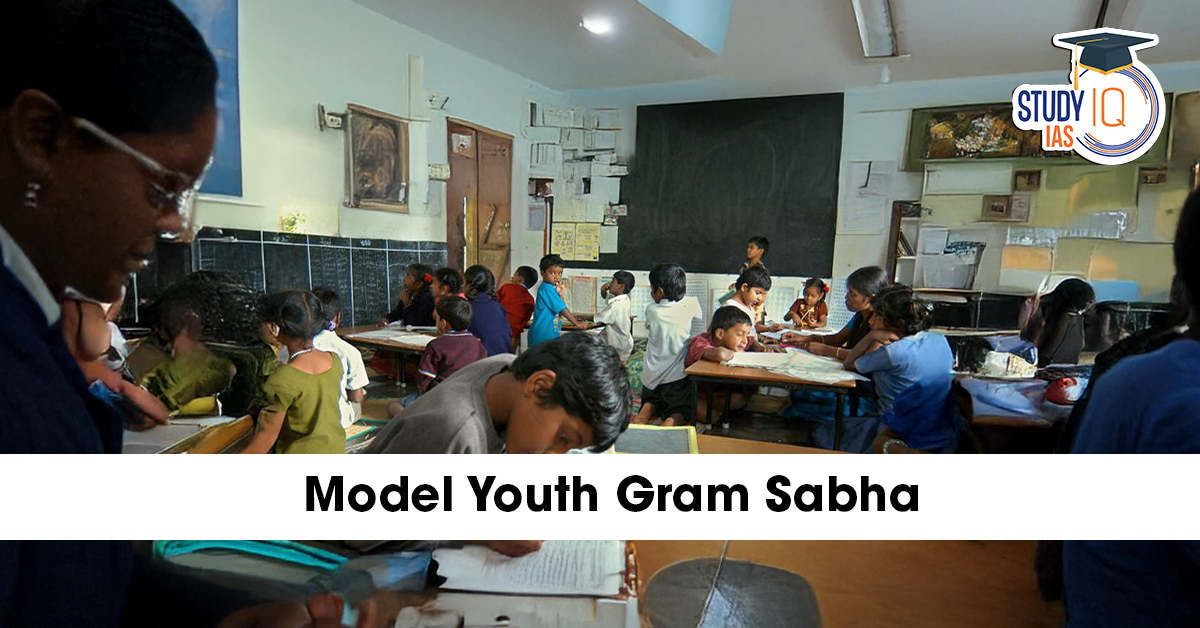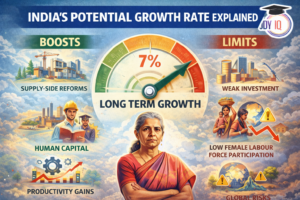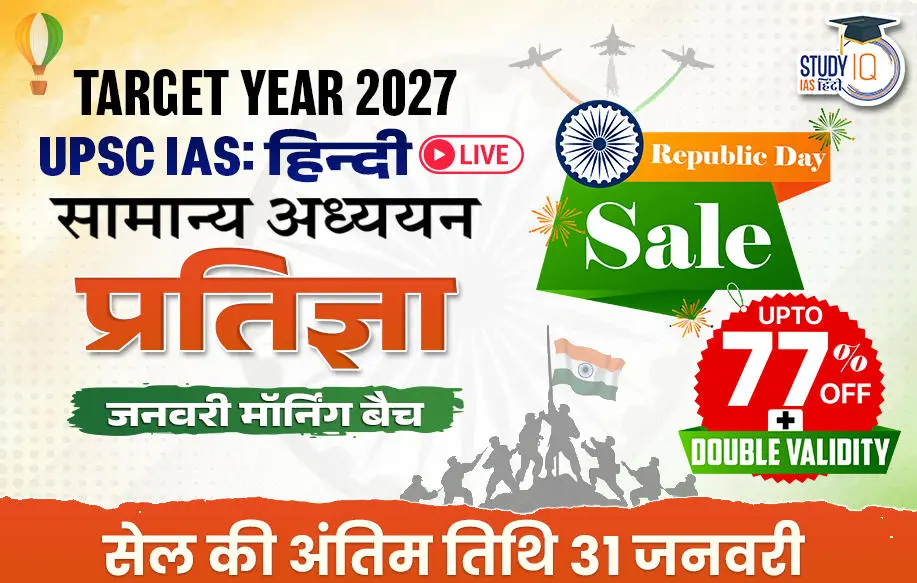Table of Contents
The Government of India is set to launch an innovative initiative, the Model Youth Gram Sabha (MYGS), in October 2025. Designed to bring the democratic functioning of villages closer to students, MYGS aims to educate young minds about grassroots governance, development planning, and civic responsibility.
What is Model Youth Gram Sabha (MYGS)?
The Model Youth Gram Sabha is an educational simulation program that mirrors the functioning of a real Gram Sabha, the local self-government assembly in Indian villages. Much like the globally popular Model United Nations (MUN), MYGS provides a platform for students to enact roles, debate, and make decisions—but with a focus on village administration and local development issues.
By participating in MYGS, students will understand local governance processes, develop critical thinking and leadership skills, and gain insights into policy-making at the grassroots level.
How Does MYGS Work?
Students from classes 9 to 12 will actively participate in mock Gram Sabha meetings, taking up roles such as:
-
Sarpanch (Village Head)
-
Ward Members
-
Village Secretary
-
Anganwadi Worker
-
Auxiliary Nurse Midwife (ANM)
-
Junior Engineers
During these sessions, students will:
-
Discuss and deliberate on village issues like sanitation, water supply, education, and healthcare.
-
Prepare village budgets and development plans.
-
Role-play decision-making processes that mimic real-world governance.
-
Suggest and vote on solutions for local problems, encouraging participatory democracy from an early age.
This immersive simulation fosters teamwork, problem-solving, and civic responsibility, preparing students to become informed and engaged citizens.
Implementation of Model Youth Gram Sabha
The first phase of MYGS, starting in October 2025, will be implemented across:
-
600 Jawahar Navodaya Vidyalayas (JNVs)
-
200 Eklavya Model Residential Schools (EMRSs)
-
Selected Zilla Parishad schools in Maharashtra and Karnataka
This initial rollout covers approximately 1,100 schools, with plans to expand to other state government-run schools in later phases.
Key Objectives
-
Promote Grassroots Democracy: Familiarize students with the functioning of local governance and democratic processes.
-
Encourage Leadership: Enable students to take leadership roles in simulated environments, preparing them for real-world responsibilities.
-
Develop Problem-Solving Skills: Teach students to identify village-level issues and propose practical solutions.
-
Bridge Education and Governance: Create awareness about government schemes, village development plans, and local administration.
Benefits of MYGS for Students
-
Practical Knowledge: Students gain hands-on experience of how a Gram Sabha functions.
-
Enhanced Leadership Skills: By role-playing positions like Sarpanch and ward members, students develop public speaking and decision-making abilities.
-
Understanding Budgeting & Development Planning: Simulating financial planning improves analytical skills.
-
Civic Awareness: Students understand their roles in society and how to contribute effectively to community welfare.
MYGS and National Educational Goals
The MYGS initiative aligns with India’s broader educational and governance objectives:
-
National Education Policy (NEP) 2020: Focus on experiential learning and practical skill-building.
-
Digital India & Local Governance: Encouraging students to understand and contribute to village-level development initiatives.
-
Youth Empowerment: Preparing the next generation to participate actively in democratic processes.
Future Prospects
After the successful launch in 1,100 schools, the MYGS program aims to expand nationwide, including all state-run schools and residential institutions. Over time, it is expected to serve as a nationwide platform for youth to actively participate in governance, ensuring that India’s future leaders are well-versed in democratic practices from a young age.
Conclusion
The Model Youth Gram Sabha (MYGS) 2025 is not just an educational exercise; it is a revolutionary initiative to connect students with the essence of grassroots democracy. By simulating real-world governance, MYGS will prepare students to become responsible, knowledgeable, and proactive citizens, capable of contributing meaningfully to their communities and the nation.
With its phased implementation in JNVs, EMRSs, and selected Zilla Parishad schools, MYGS promises to transform civic education in India, making learning both practical and engaging.


 Union Budget 2026 Highlights: Key Announ...
Union Budget 2026 Highlights: Key Announ...
 Guru Ravidas Jayanti 2026: Date, Signifi...
Guru Ravidas Jayanti 2026: Date, Signifi...
 India’s Potential Growth Rate Explaine...
India’s Potential Growth Rate Explaine...

























